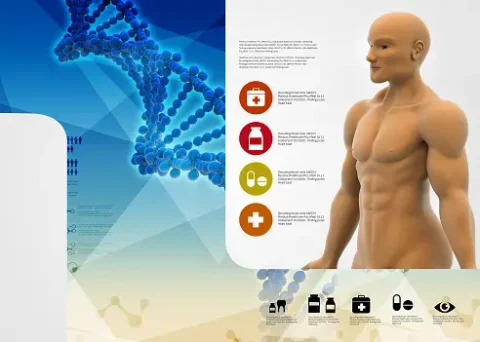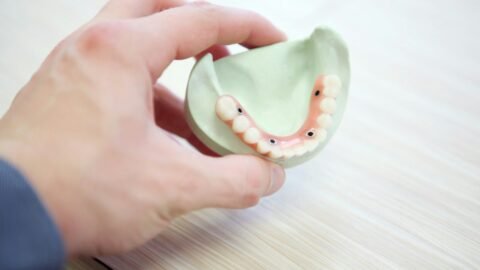So you have all been there sitting in the dentist’s chair from time to time, not knowing what goes on. What your general dentist is looking for during your dental exam can put your mind at ease and help you put more importance on those check-ups. Whether seasoned patient or reading to advance your knowledge of oral health, this post will outline what makes up a dental exam, as well as why.
By learning what goes down during a dental exam, you can better interact with your dentist and get the most out of your dental cleaning & exams near you. So let’s take a step through the great background your dentist will review to keep your oral health in top condition.
The Preliminary Discussion Laying the Foundation for Your Dental Exam
It usually begins as a chatty conversation, with queries to the patient regarding his or her dental history and issues of concern. Such engagement in conversation will make the dentist or hygienist pay special attention to certain areas as he or she conducts an examination, thus making it an operation customized for the individual.
The other crucial aspect of knowledge is your lifestyle. Practices such as smoking, diet intake, or even grinding of teeth can gravely impair oral health. Instructing the dentist on these aspects yields better insight into possible problems and preventive measures.
The last part being reviewed is your medical history. There are some health conditions and medicines that may influence dental well-being. Sharing such information would mean that your dentist is now in a better position to conduct the exam based on your individual needs.
A Closer Look at Your Teeth Examining the Tooth Surfaces
The dentist will take a close look at every part of each tooth, checking for cavities or decay. Using mirrors and other dental equipment to peer inside crevices, as nothing should have escaped or been overlooked, the hope in doing so is that it will catch the problem before it worsens, while still easier to treat.
Besides checking for cavities, your dentist will also examine your teeth for decay and erosion. Some erosion is indeed possible through daily activities such as chewing. These detections will enable your dentist to come up with options on how you can protect your teeth from further erosion or keep them strong.
Finally, the dentist checks how well your upper and lower teeth align. Proper alignment is very important so that you can chew efficiently and stay pain-free in your jaw. The dentist will check for misalignment and suggest some form of orthodontic work if this is a problem.
Gums in the Timeglass Examining Gum Health and Disease
Your gums are a very essential part of your oral health. Your dentist will check on your gums to look for signs of gum disease: swelling, redness, or bleeding. Gum disease caught early will prevent worse problems in the future.
In addition, your dentist will measure the depth of the pockets between the teeth and gums. The presence of deep pockets indicates a sign of gum disease and also might require a more urgent measure to prevent the total loss of one or more teeth.
Apart from these physical indications, digital X-rays can be used to detect problems without visible signs. These radiographic views show you the overall situation of what’s inside your gum, so your dentist treats problems there when necessary.
The Role of X-Rays: Insights into Oral Health
X-rays are quite an important aid in the dental examination. They allow information to be made available to you in relation to parts of your mouth that cannot be seen without their help. This includes the roots of your teeth and the overall bone structure that can sustain your teeth.
Problems such as impacted teeth, infections, or bone loss can be detected via X-rays. The earlier the problems are detected, the sooner their treatment can be started, saving one from future significant troubles.
According to the professional judgment of the dentist, the time and frequency for taking X-rays will be determined. Age and/or previous oral health history along with the particular concerns will form these decisions, minimizing exposure as much as possible while maximizing benefit.
Screening for Oral Cancer Maintaining Your General Health
Oral cancer is a serious illness that can arise even without overt symptoms. Your dentist will undertake an extensive examination to identify unusual changes in the mouth, such as ulcers or white lesions.
Aside from visual examination, your dentist will also look at the lumps or any other deviation on your neck and throat. The earlier the detection of such irregularities, the greater the chance that the treatment would be effective for a full recovery.
During your dental checkup, oral cancer screening preserves more than oral health on your part. With this, you receive the confidence and advanced care that can further prevent more issues.
Evaluating Your Tongue and Throat Secrets of Health Indicators
Your tongue and throat can tell far more about your health than you may ever imagine. On your dental appraisal, your dentist will check your tongue for infection signs and also other changes. A check of one’s tongue texture and color, as well as its movement, is said to indicate one’s condition, from what nutritional deficiency you may be suffering from to a more serious one. Your dentist might give you advice or even refer you to a specialist based on that.
You also have to care for your throat. Your dentist is going to check it for infection or inflammation, treating the matter promptly and effectively.
Examination of Your Jaw Joint; Comfort and Function
The temporomandibular joint, which is the TMJ, is a part of your body that serves to let you speak comfortably and chew your food. Your dentist will evaluate your jaw joint for healthy reasons. The dentist has to check it for pain, tenderness, or any clicking sounds.
TMJ problems can become very painful and disturb the quality of your life. If these issues are recognized early, then your dentist can prescribe the right kind of treatment or exercises to start overcoming symptoms and restore function.
The dentist will also examine the muscles around it. Tension or imbalances in these muscles may be causing part of the TMJ problems, so these factors need to be addressed to ensure a long-term solution.
Understanding Plaque and Tartar The Key to Preventing Cavities
Plaque is a sticky film of bacteria. During your dental exam, your dentist will evaluate the degree of plaque present and give you tips on brushing and flossing to keep it under control.
Plaque becomes tartar when it dries up. Unlike plaque, tartar is not able to be removed by a typical brushing. Your dentist will use special instruments to clean your mouth safely to ensure that cavities and gum disease are not allowed to walk out.
The dentist helps to keep your smile in good health with oral care, treating the plaque and tartar build-up, and catching problems as they occur to get them resolved before they become bad.
Discuss Your Home Care Routine Redesigning Healthy Practices
Another important aspect of home care is your routine at home. Your dentist will discuss your current practice and provide individualized recommendations for improvement.
Brushing and flossing properly is the most important way to avoid cavities and gum disease. Your dentist will show you the best methods to ensure that your efforts at home are as effective as possible.
In addition to brushing and flossing, your dentist may recommend additional aids, such as interdental brushes or water flossers, that will complement your home care routine in continuing to maintain your healthy mouth.
Tailor-Made Guidance for Your Lifestyle Personalized Dental Care
Your lifestyle can significantly impact your oral health. Your dentist will take diet, stress, and sleep patterns into account when directing you to tailored guidance on keeping your teeth and gums in good shape.
As simple as cutting down sugar consumption or foods high in calcium. Your dentist shall provide down-to-earth advice that makes those simple lifestyle changes.
Of course, you can go for additional treatments or products if lifestyle alone is not enough for you to care for your oral health. Your dentist assures that you get the kind of care you deserve.
Protecting Your Smile for the Future The Power of Preventive Care
A healthy smile starts with preventative care. Regular dental exams can mean that a potential future problem may be detected before it’s major and treatments by your dentist are offered to prevent the potential worsening of that issue.
Another important service beyond exams is professional cleanings, which ensure oral health. With these appointments, plaque and tartar build-up cannot be targeted at home, keeping one’s teeth and gums healthy.
Invest in long-term health and wellness by focusing on preventive care, ensuring a healthy smile and a beautiful one for years to come.
Building Trust and Communication through a Good Relationship with Your Dentist
Trust, open communication, and a good dental experience are a given when you have a good relationship with your dentist in Gainesville.
Visiting your Gainesville dental office regularly puts you in contact with your dentist and hygienist. That trust fosters more individualized attention and accounts for your specific needs.
Ask any questions or voice any concerns at those appointments. Your dentist can be there to offer emotional support and apprise you of important considerations when it comes to your oral health.
Understanding what a general dentist looks for during your dental exam puts you in control of your oral health. Informed and engaged, you can work with your dentist to maintain a strong, beautiful smile.
Don’t forget your dental check-ups and cleanings near you. Preventive care is an investment in your long-term health and well-being.
Don’t wait to schedule your next dental exam. Reach out Georgia Smile Team, and take the first step toward a healthier smile and brighter future.
Passionate content writer and savvy blog publisher, Aamir crafts compelling stories and insightful articles that captivate and inform. With a knack for blending creativity and strategy, they bring fresh perspectives to every piece. Dive into their world of words and discover content that resonates.





